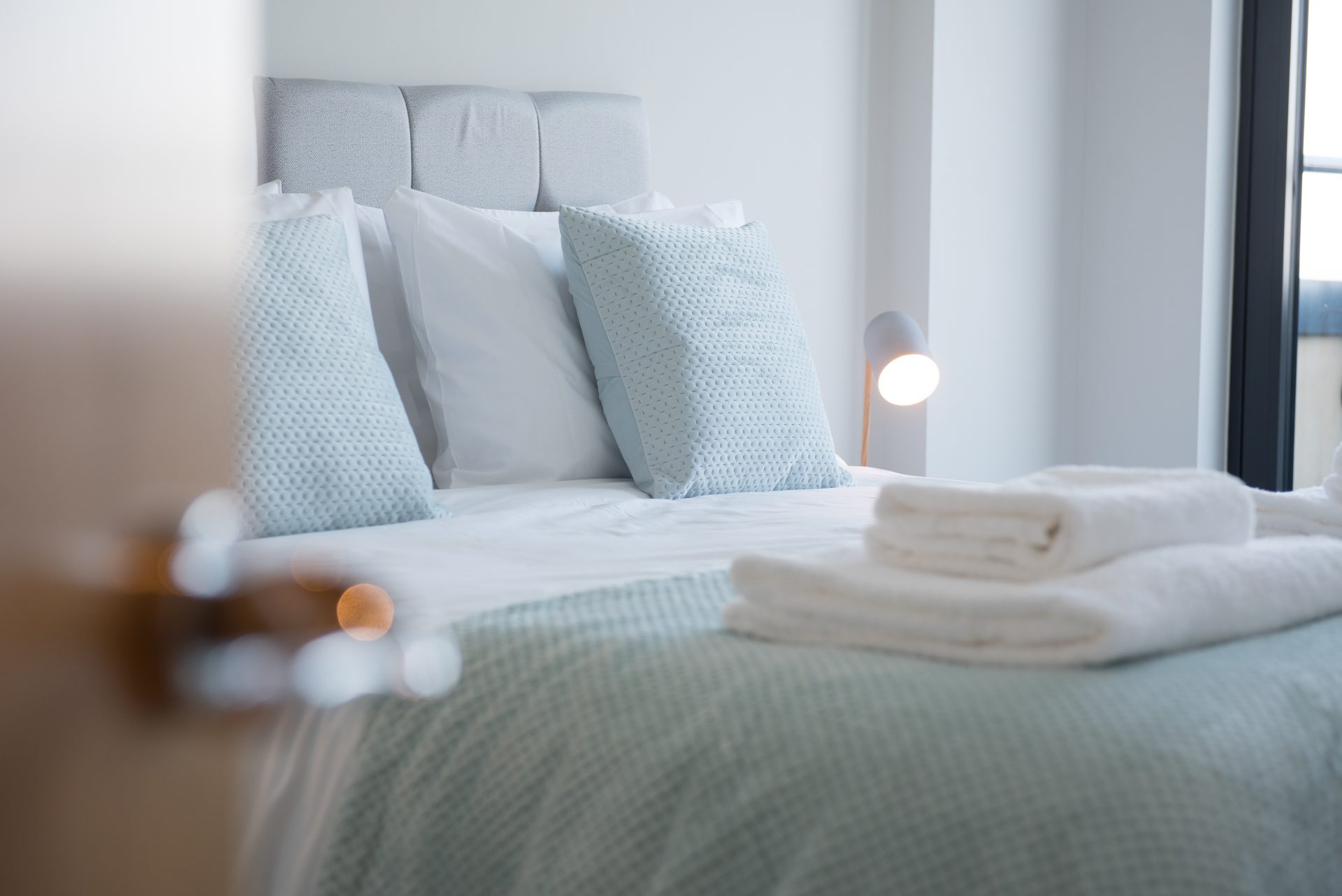A phenomenon called the “first night effect” means part of the brain may remain alert in new environments. Here’s how to cope and get a restful night’s sleep.
It’s holiday season, which means – if we’re lucky – our calenders are marked with exciting travel plans and relaxing staycations.
High on most people’s summer wish list is a relaxing stay in a cosy hotel room. But, even if the sheets are crisp, the duvet fluffy and the pillows plumped to perfection, the first night’s sleep in even the most luxurious of hotel rooms can be dreadful compared to being at home.
If you’ve ever woken up groggy on the first morning of a holiday after a restless night, you’re not alone. A long line of sleep research has found we often experience a troubled night’s sleep in a new environment – a phenomenon known as the “first night effect”.
You may also like
Sleep deprivation: 5 signs you’re not getting enough good quality sleep, according to an expert
Scientists have found that when we stay somewhere that’s unfamiliar our brains can go into surveillance mode. A study in the Psychophysiology journal found the first night effect means that while one side of our brains goes to sleep, the other half remains alert. Basically, it’s the human equivalent of animals sleeping with one eye open to protect themselves against predators.
According to another study in Current Biology, this is because our brain’s night watch system is on the lookout for unusual sounds that could be a threat, an effect that diminishes on becoming more familiar with a new environment.
So if you’ve got some trips planned over the next few months, it’s worth “trying to find ways to mute the brain’s red alert status when it’s somewhere new,” says Hope Bastine, a psychologist and resident sleep expert at Simba.
To help you get a good night’s sleep and make the most of your well-earned break, here are six expert-approved ways of relaxing your brain and getting some proper shut-eye somewhere new.
How to sleep well on holiday
Pick the right accommodation
When you’re searching for somewhere new to stay, “scout out bedrooms that radiate safety and snugness,” says Bastine. That means avoiding televisions and ticking clocks that can produce lights and sounds to stop us from drifting off and try seeking out rooms that have blackout blinds and sound-absorbing curtains to aid sleep.
Looking for rooms that are soft pink in colour can “encourage positivity, relaxation and REM-rich sleep”.
“Search for places that have ethereal fabrics and even artwork that can transport the mind and be inspirational dream fodder,” adds Bastine. “If you’re blessed with staying somewhere with rocking chairs on hand, this can help lull you into a relaxed state of mind.”
Don’t scrimp on bedding
We all know having a comfortable bed is essential if you want to have a good night’s sleep, so don’t be afraid to ask for alternative pillows and sheets if the ones at your hotel aren’t right for you.
“If you’re travelling by car, pack your own pillow if you have space,” says Bastine. This also means you’ll have a bit of familiarity in a new bedroom to help quell the first night effect.

Beat jet lag
Travelling further afield to a new time zone can be exciting, but it can play havoc with your circadian rhythm, or the body’s inbuilt sleep/wake cycle which is essential for most of our bodily functions.
“The brain loves routine, so stick to your sleep ritual and routine as much as possible, but just adjust them to your new time zone,” explains Bastine. “This means trying to keep to your usual mealtimes as much as possible or exercising at the same time before bed as normal.”
Slowly adjusting your sleep/waking cycle to the new time zone before you actually get there can also mean that drifting off is much easier when you actually get to your destination.
Pick the right position
If you’re struggling to drift off, sleep experts suggest that sleeping on your side can help. Speaking to Eve, The Sleep Site’s Dave Gibson, says lying on your side is probably the easiest position to stay comfortable in through the night as it allows us to move and fidget more freely when compared to lying on our backs and “is the easiest position to get your spine in neutral alignment too”.
Side sleeping with your neck supported by a good quality pillow can also prevent heartburn and snoring.
You may also like
25 sleep aid products from indie brands for a better night’s sleep
Bring the right things with you
If getting some sleep on the plane to your destination will help you stay fresh for a different time zone, Bastine advises bringing some ear plugs or noise-cancelling headphones, an eye mask and a neck pillow on the plane to help you nod off.
Packing things like lavender-scented hand cream, or travel-size pillow sprays can help promote a relaxing atmosphere in hotel rooms.
“Take an item that is personal to you (from your sleep ritual) that acts as a comfort that reminds you of home,” says Bastine. “For me, it is a small travel-size organic aromatherapy candle, my mediation stone, my mandala and my Tibetan wool pashmina shawl that is a calming colour.”
Eat the right things
More and more research suggests that what we eat and our digestion can have an impact on how we sleep, thanks to our gut microbiome’s relationship to the gut-brain-axis.
While we’re all familiar with jet lag, Charlotte Turner, founder of Health Nutritionist and registered nutritionist, warns of something called ‘gut lag’? “Our gut health is connected to our circadian clock – our sleep-wake cycle,” explains Turner. “If we are flying long distances this can mess up our gut habits, causing gut lag.” Try spending time outside in natural light first thing in the morning when you arrive at your destination; this will get your circadian rhythm functioning properly again.
Turner also suggests focusing on eating fibre – she suggests around 30g a day – and incorporating gentle exercise into your day to get your gut moving and eating gut-friendly like natural yoghurts, plenty of fruit and veg and different wholegrains.
Planning your caffeine intake to enhance daytime alertness in your new time zone can also be beneficial.
Images: Getty
Source: Read Full Article



